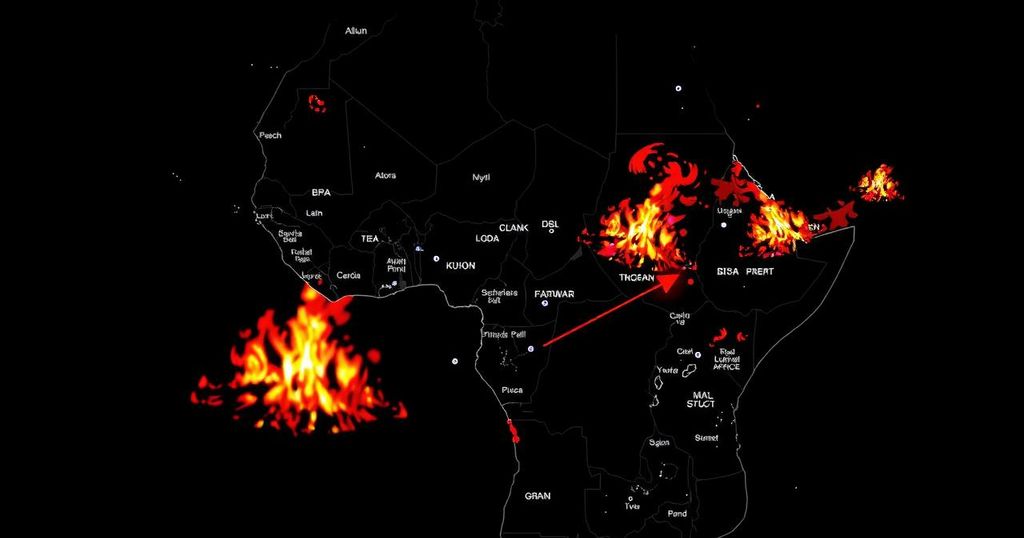Post-Election Violence in Mozambique: Implications for Southern Africa

Post-election violence in Mozambique following the disputed October 9 elections poses a significant concern for Southern Africa, affecting regional stability, trade, and political security. The unrest, which includes at least 30 fatalities, has led to border closures in South Africa, impacting the economy and highlighting the interconnectedness of regional issues. The aftermath of Mozambique’s elections reflects broader challenges within the Southern African political landscape, historically marked by conflict and instability.
The recent post-election violence in Mozambique has prompted significant concern throughout Southern Africa, especially following the protests erupting after the disputed October 9 elections. The ruling Frelimo party has maintained its grip on power for 49 years, and the opposition’s discontent has spilled onto the streets, leading to tragic consequences, including at least 30 reported deaths. Venancio Mondlane, an independent candidate who secured 20% of the votes, questions the election’s legitimacy and calls for widespread demonstrations. This situation poses a larger threat to regional stability and economic relations. Countries within Southern Africa, including South Africa and Botswana, have demonstrated the capacity for stable democracies and credible elections. Notably, Botswana’s recent elections led to a significant transfer of power, and South Africa has witnessed its ruling party lose parliamentary dominance for the first time since apartheid. In contrast, Mozambique’s electoral disputes and accusations of corruption echo the precarious political climates of nations like Zimbabwe, where international observers have decried irregularities in recent elections. Economically, Mozambique plays a vital role in the regional trade ecosystem due to its connections to several neighboring countries. The recent violence has disrupted trade, prompting South Africa to close its border with Mozambique. This closure has significant economic repercussions, costing South Africa millions daily and stranding transport of essential resources through the vital Maputo harbor, highlighting the intertwined nature of stability and economic well-being in the region. Moreover, Mozambique’s political landscape remains fraught with challenges resulting from a violent past, including a civil war and ongoing threats from Islamist militancy. The return of nearly 600,000 individuals displaced by violence underscores the fragility of Mozambique’s recovery efforts. As the nation grapples with both internal instability and external pressures, the ramifications of its political disputes ripple across the international borders, affecting thousands and further complicating the region’s migration patterns.
The post-election violence in Mozambique, ignited by disputed election outcomes in October 2024, raises alarming concerns for Southern Africa. With the ruling Frelimo party continuing its 49-year reign amid opposition unrest, the ripple effects of this instability could threaten the democratic progress achieved in neighboring countries. Historical tensions in Mozambique, including remnants of civil conflict and new threats from militant groups, further exacerbate regional vulnerabilities.
The ongoing post-election violence in Mozambique is not only a domestic concern but also a critical issue for the Southern African region. The consequences of the disturbances threaten economic stability, undermine democratic governance, and could provoke increased migration. As regional leaders prepare for strategic discussions, addressing these violent outbreaks and promoting electoral integrity will be essential for fostering long-term stability and cooperation in Southern Africa.
Original Source: apnews.com







